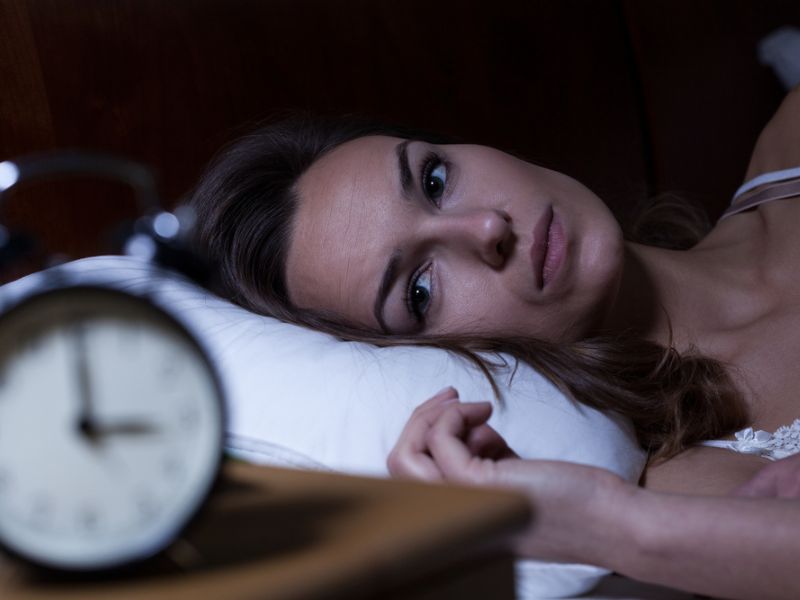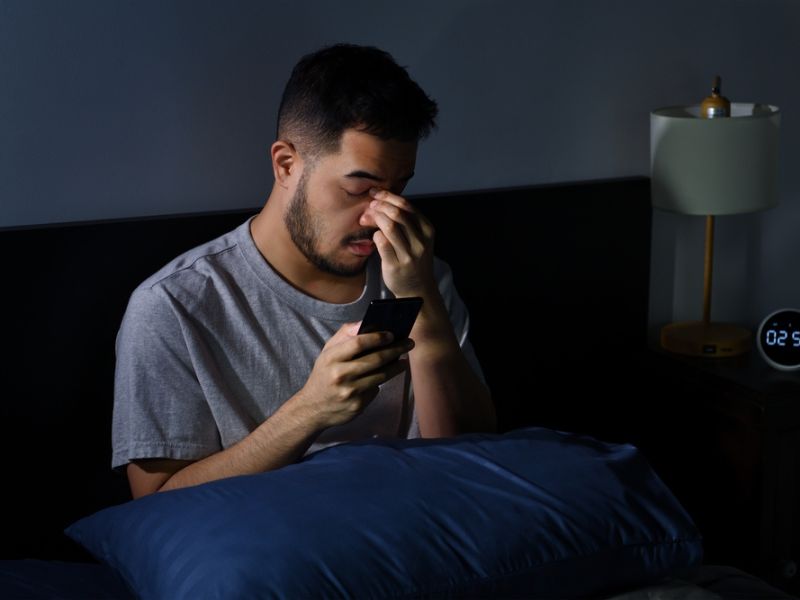Sleep anxiety can be highly frustrating. You enjoy a cup of chamomile tea during your evening skincare routine. You begin to feel that feeling as if you won’t be able to drift off to dreamland, anxiety that will keep you up all night, doomscrolling in a fit of revenge procrastination for bedtime.
Sleep anxiety is not an official sleep disorder. As a sleep psychologist, Michael Breus, Ph.D., says, “We don’t diagnose someone with sleep anxiety—we diagnose them with insomnia or insomnia secondary to a particular anxiety disorder, like generalized anxiety or obsessive-compulsive disorder.”

Image Credit: Shutterstock/Ground Picture
As Dr. Breus confirms, “every sleep doctor in the universe” knows that anxiety can cause sleep problems. Most people who don’t sleep have fear. Some depression can also be caused by environmental factors, medications, medical conditions, or even depression itself.”
Here are some tips for preventing and dealing with sleep anxiety.
Sleep Anxiety: What Is It?
Dr. Robbins describes sleep anxiety as a worry or stress that interferes with your ability to fall asleep or maintain sleep. It can be triggered by an early alarm, a lousy night’s sleep earlier in the week, or nothing. “Anxiety can manifest physically, cognitively, or behaviorally.
How Common Is Sleep Anxiety?
Generalized anxiety and sleep deprivation fuel each other, making you more likely to have sleep anxiety. Lack of sleep affects the brain’s frontal lobe, which is responsible for executive function, decision-making, and problem-solving.

Image Credit: Shutterstock/amenic181
It’s Important To Deal With It
Sleep disturbances may be the result of a common mistake. If you can’t fall asleep or can’t stay asleep, it’s something you should address. Dr. Robbins says sleep anxiety will increase the odds of developing insomnia.
Anxiety About Sleep: How To Treat It
Sleeping with anxiety is not a pleasant experience. Here’s what you need to do.
- A therapy session may be beneficial
- A bedtime routine can help you sleep better
- Practice meditation
- Taking a walk
- Motivate yourself
- Be consistent with your schedule